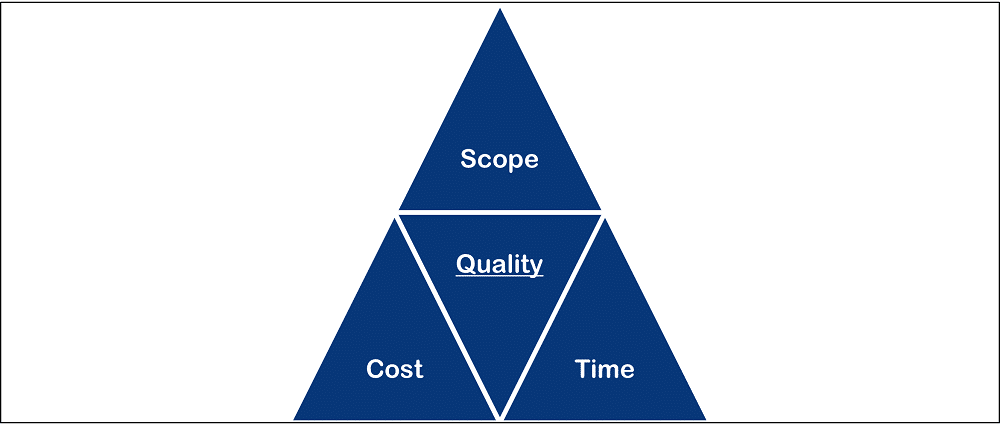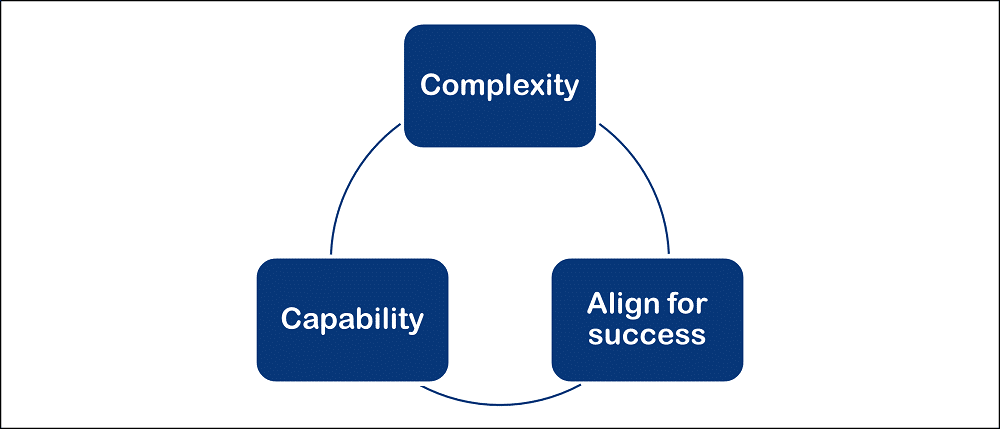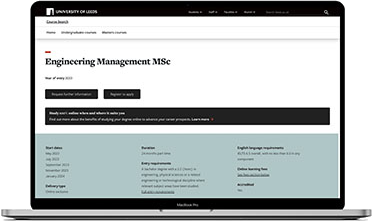How Engineering Managers Can Lead Major Projects
Engineering Management
At a first glance, managing major engineering projects can appear an intimidating task, with a range of stakeholders to satisfy, employees to lead, tasks to fulfill and challenges to overcome. However, there are a variety of strategic approaches that engineering managers can take to manage these pressures and enhance the success of their projects.
When transitioning from an engineer to an engineering manager across any specialisation such as chemical or mechanical engineering, it’s crucial to be able to build robust business cases, undertake effective planning and governance and execute high-quality delivery to contribute to the success of a project.
In this article, we assess four strategic approaches to help engineering managers effectively manage their major projects.
Learn more about our Engineering Management course1. Build robust business cases
As a first step, it’s important for engineering managers to build robust business cases that can be pitched to potential clients to encourage projects to commence. These must be trustworthy and relied upon, and they typically consist of clear objectives which outline the mutual benefit that will be received by the engineering organisation and its stakeholders.
When creating a business case, this must visibly demonstrate the challenges the organisation is facing and how a potential project will help them overcome their issue. Clear objectives must also outline the benefits of undertaking the project such as return on investment, whilst identifying the associated costs and risks.
For engineering managers, developing business cases require strong strategic planning, critical thinking, and stakeholder management, and these capabilities will influence key decision-making and develop business consideration to generate prospective opportunities.
2. Plan projects using ‘The Iron Triangle’
Once a business case has been set out and a project is confirmed, engineering managers can then take advantage of ‘The Iron Triangle’ framework to plot out the next steps.
‘The Iron Triangle’ is a framework commonly used in engineering which emphasises three constraints that engineering managers need to overcome to contribute to the success of a project:
- Scope – the tasks required to achieve the goals of a project
- Time – the scheduled time required to execute a project from start to finish
- Cost – the budget and financial implications of a project.
When these three elements are managed effectively, they will develop the quality of a project which sits at the centre of the framework.

For engineering managers, it’s crucial to plan these considerations and then adjust them accordingly as the project develops. This is to achieve the desired outcome without drastically impacting the other constraints. For example, the cost of a project will impact the time that can be spent on delivery, and the scope in tasks that can be executed. If one of these elements need to be altered throughout, this will also have an impact on the other constraints.
In engineering, it’s crucial to get this balance right to enhance the quality of a project. Each of these constraints will differ in importance depending on the type of engineering project, stakeholder, and end-user, so planning this is vital to get the project off to a good start.
3. Ensure good project governance and leadership
Following the effective planning of a project, efficient governance and leadership from engineering managers are critical.
According to the Project Management Institute, good project governance is the process of decision making and the way they are implemented to contribute to the success of a project. By making responsible decisions throughout different stages, engineering managers can ensure that sustainability legislations and health and safety criteria are met and that tasks are conducted ethically to enhance their project.
Alongside this, executing governance with strong leadership skills is also a must when managing engineering projects, to instill trust and buy-in from engineers, social groups, and other stakeholders.
4. Deliver projects using ‘The Project Initiation Routemap’
Finally, to ensure that projects do not fall short of expectations set out during the planning stages, the project initiation routemap framework can be utilised by engineering managers to ensure the effective delivery of their projects. This was developed by the UK government, primarily for infrastructure developments and is divided into three key sections:
- Complexity – the ability to understand the wider project environment.
- Capability – the ability to organise the effective delivery of a project.
- Align for success – identifying gaps in complexity and capability to plan enhancements.

During the delivery of major engineering projects, managers must assess the complexity of projects by scrutinising the challenges and risks to its execution. By incorporating factors such as the reliance on technologies, the dependencies on other project deliveries and interconnectedness with policies and legislation, risks and delays can be mitigated.
Alongside this, an understanding of the capabilities of various stakeholders involved such as clients and engineer’s capacity and knowledge is crucial. This will ensure the timely delivery of projects, applied with expert engineering knowledge. Once these assessments have taken place, aligning for success can be used as a next step to ensure any identified gaps in complexity and capacity, such as technological requirements and skills gaps, are addressed.
For engineering managers, it’s vital to execute these steps when managing projects, whilst demonstrating the relevant competencies required to improve and optimise the delivery of major engineering projects.
If you want to become a multiskilled professional at the forefront of engineering and the creativity and innovation surrounding it, you should consider becoming an engineering manager with the help of our specialised Masters. Our module in Managing Major Engineering Projects will introduce you to the key characteristics of managing large engineering projects and cover the frameworks mentioned throughout this blog. You will understand the context and stakeholders in which projects are initiated and delivered, whilst developing your awareness of the key risks and implications on financing and contracting.
Why study an Engineering Management MSc at the University of Leeds?
The Engineering Management MSc at the University of Leeds is delivered 100% online, giving you the flexibility to learn whilst working. The course is specifically designed for Engineers and will enable you to apply the advanced management techniques and practical skills that tomorrow’s business leaders will need.
“At some point, engineers hit a point where you realise that you need other skills, not just your technical speciality. You need to think about learning how to manage; this is not just managing people but managing projects as well. I started to notice that I was lacking knowledge in the business strategy areas of engineering, as I had focused a lot on technical skills, and therefore I wanted to develop it further”

Did you enjoy this blog? Here’s some related engineering content that you may be interested in:

Want to learn more about our online Engineering Management course?
Check out the course content and how to apply.

